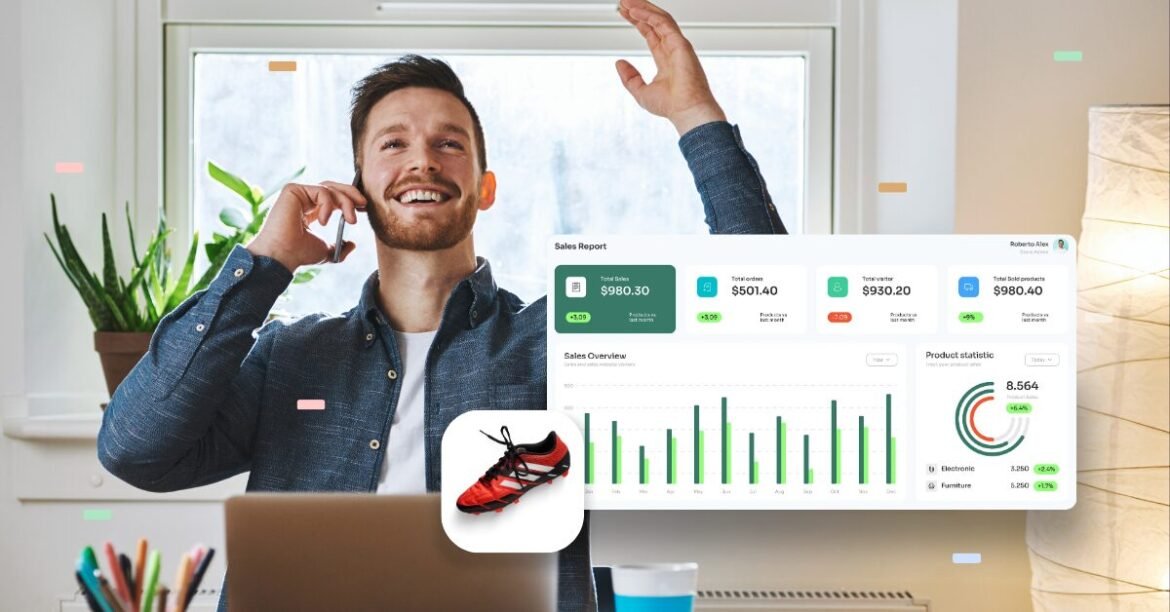The difference between a forgettable ecommerce store and a lasting brand often comes down to the supplier working behind the scenes. Speed, brand consistency, and a seamless customer experience from checkout to doorstep drive dropshipping success in 2025.
That’s why more online businesses are choosing U.S.-based dropshipping suppliers. With faster shipping, better packaging options, and localized support, these partners help you deliver the kind of polished experience customers now expect. For those seeking a balance between cost-effective sourcing and rapid fulfillment, a prominent China supplier provides the optimal solution by utilizing a U.S. warehouse.
Here’s a closer look at the top dropshipping suppliers in the U.S. and how they can help your store thrive.
The Case for Domestic Fulfillment in a Demanding Market
Today’s customers want their orders fast—and they don’t care how it happens, as long as the product shows up quickly, well-packaged, and without issues. When you work with a U.S.-based supplier, you’re positioned to meet those expectations consistently.
Domestic fulfillment centers shorten delivery windows, making 2–5 day shipping the standard, not the exception. Localized operations also mean fewer delays, simpler returns, and easier communication. With many U.S. suppliers offering white-label options and custom branding services, you can build a polished, professional image that makes your store stand out. On top of that, automation tools and seamless platform integrations make running your business smoother and more scalable.
Leading U.S. Suppliers Every Dropshipper Should Know in 2025
- Dropship China Pro
Dropship China Pro has carved out a unique space in the market by combining the pricing flexibility of overseas sourcing with the delivery speed of U.S.-based logistics. The company provides a rare balance of cost and efficiency by operating from a warehouse in Los Angeles and utilizing a deep product sourcing network in China.
What sets them apart is their full branding support. Merchants can customize everything from product packaging and inserts to the overall unboxing experience, giving them the ability to compete with established DTC brands. Their streamlined software interface also makes it easy to manage inventory, track orders, and communicate with dedicated support. Dropship China Pro is a top-tier option for those seeking a China supplier who doesn’t compromise on quality or speed.
- Spocket
Spocket serves as a perfect platform for entrepreneurs seeking to establish a seamless connection with reliable U.S. suppliers. The setup process is fast, the integrations with e-commerce platforms are seamless, and most suppliers offer delivery within a few business days.
While branding is dependent on the individual supplier and may be limited in some cases, Spocket remains a go-to for sellers who prioritize ease, reliability, and speed—especially when just starting out or running a streamlined operation.
- GreenDropShip
GreenDropShip is the go-to for businesses operating in wellness, natural goods, and sustainable product niches. Their catalog includes everything from organic snacks to clean beauty products, all sourced with care and fulfilled from U.S. warehouses.
Store owners also benefit from the option to private label select products, which can help build a focused, values-driven brand. While there’s a membership fee, access to high-quality, niche goods with domestic fulfillment more than justifies the investment for many sellers.
- Wholesale2B
If your store offers products across multiple categories or you want to test different niches, Wholesale2B offers access to over a million SKUs via a network of U.S.-based suppliers. From apparel to tools to pet accessories, they cover just about everything.
Branding options can vary by supplier, but the strength of the platform lies in its automation. Orders are forwarded automatically, inventory is synced in real time, and sellers can list products across platforms like Shopify, eBay, and Amazon without hassle. It’s ideal for high-volume sellers or general stores looking for simplicity at scale.
- Printful
Printful is a favorite for anyone creating customized products—from fashion and accessories to wall art and home goods. With multiple production centers in the U.S., Printful ensures fast shipping times and strict quality control, which are essential for customer satisfaction.
What makes Printful especially valuable is its branding potential. Sellers can personalize everything from labels to packaging to tracking emails, giving their stores a cohesive and memorable identity. For creators and entrepreneurs with a strong brand vision, Printful makes it easy to turn that vision into a fully functioning store.
- ShipBob
ShipBob offers a robust fulfillment solution for fast-growing e-commerce stores. With warehouses in key U.S. cities and a tech-first approach, it supports everything from inventory optimization to two-day delivery for most regions.
It’s especially useful for stores making the leap from casual selling to serious brand building. With options for branded packaging and detailed shipping analytics, ShipBob gives you the infrastructure of a professional logistics team—without needing to build one yourself.
Think Long-Term. Choose the Right Fulfillment Partner.
Your brand’s reputation directly influences your fulfillment strategy in today’s ecommerce environment. Customers don’t just remember the product—they remember how it arrived, how quickly it got there, and whether it felt like it came from a brand they trust.
Choosing a U.S.-based supplier helps you meet those expectations head-on. And if you’re seeking the sourcing flexibility of a China supplier without the slowdowns? Dropship China Pro delivers both cost efficiency and fulfillment speed—plus the branding capabilities that today’s DTC stores need to compete.
Fulfillment isn’t just logistics anymore—it’s part of your product.


